Simple Gesture Made by Quick-Thinking Couple ‘Saved Many Lives’ as Flash Floods Tore Through Campground
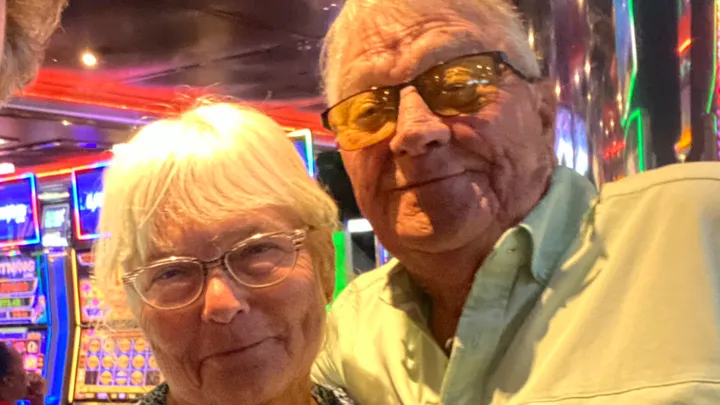
Something happened at 4:45 AM on a Texas campground that would separate the living from the dead. In less than ten minutes, an ordinary summer morning transformed into a fight for survival that would test every person’s character and quick-thinking ability.
Families slept peacefully in their cabins, RVs, and tents along the Guadalupe River, celebrating Independence Day weekend without knowing that nature was about to unleash one of the deadliest floods in decades. A month’s worth of rain was falling in hours, sending water levels surging to catastrophic heights.
But in those crucial moments between warning and disaster, two people made a decision that would echo through multiple families’ lives forever. Their choice wasn’t complicated or expensive. They didn’t need special training or emergency equipment. What they did was simple, immediate, and absolutely life-saving.
104 people would die in those floods. But because of one couple’s split-second thinking and willingness to risk their own safety for strangers, that number could have been much higher. What they did next challenges everything we think we know about heroism and emergency response.
Minnesota Retirees Living Summer Dream in Texas
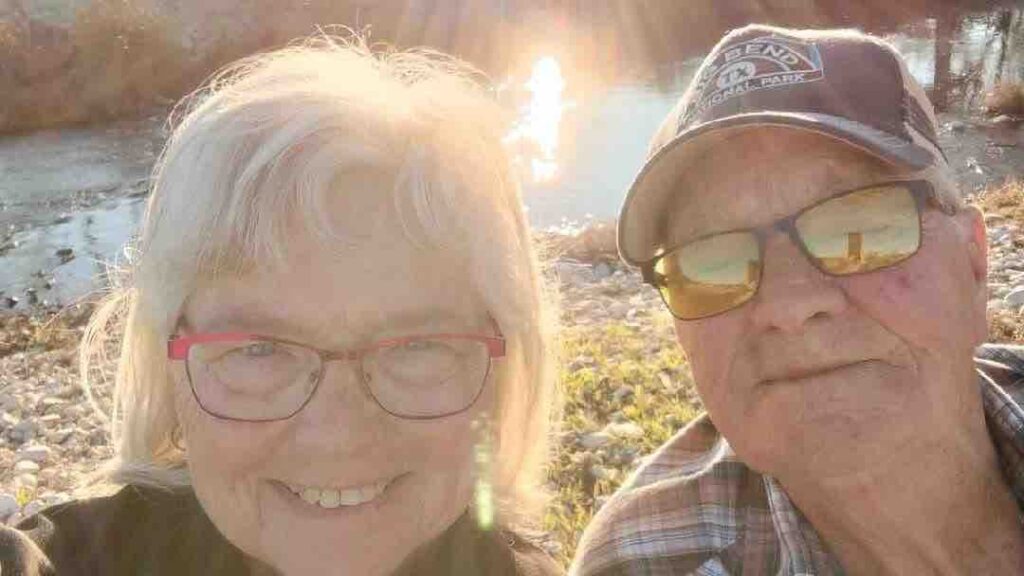
Lyle Glenna, 78, and his wife Sue, 68, had traveled from Chisago City, Minnesota, to spend their summer working and living at the HTR campground between Kerrville and Ingram. Like many retirees, they’d found a way to combine adventure with purpose, helping run a campground along the scenic Guadalupe River.
Summer work at the campground provided them with community, purpose, and a break from Minnesota winters. They’d built relationships with fellow workers, regular visitors, and seasonal campers who returned year after year.
Neither Lyle nor Sue could have imagined that their retirement adventure would place them at the center of one of Texas’s worst natural disasters. Their campground home sat directly in the path of floodwaters that would soon rage with deadly force.
Years of peaceful summers along the river had given them no reason to expect what was coming. Like everyone else sleeping that morning, they believed they were safe from nature’s sudden fury.
Fire Department Delivers Nightmare News
Fire Department officials arrived at the campground with urgent warnings about fast-approaching floodwaters. One month’s worth of heavy rain had fallen in just hours, causing the Guadalupe River to rise to a dangerous 26-foot level.
Sleeping campers had no idea that deadly water was racing toward their temporary homes. Mobile homes, vehicles, and holiday cabins scattered throughout the campground sat directly in the flood’s path.
Emergency responders faced an impossible task: warning scattered campers across a large area with minimal time before water arrived. Traditional emergency systems couldn’t reach everyone quickly enough to prevent tragedy.
Lyle and Sue received the warning and immediately grasped the severity of their situation. But instead of focusing solely on their own escape, they recognized that many fellow campers remained unaware of approaching danger.
Ten Minutes to Live or Die
Less than ten minutes separated the warning from total campground flooding. In that impossibly short timeframe, water would transform a peaceful holiday destination into a deadly torrent carrying away everything in its path.
Lyle grabbed Sue despite his history of heart problems. Age and medical issues couldn’t slow their response when lives hung in the balance. They raced to their vehicles knowing that seconds would determine who lived and who died.
Most people would focus entirely on personal escape during such moments. Fight-or-flight responses typically prioritize individual survival over helping others. But Lyle and Sue made a different choice.
Instead of simply fleeing to safety, they decided to use their precious escape time helping others recognize the danger. Their decision to delay their own escape while warning fellow campers demonstrated remarkable courage and selflessness.
Horn Symphony That Saved Lives
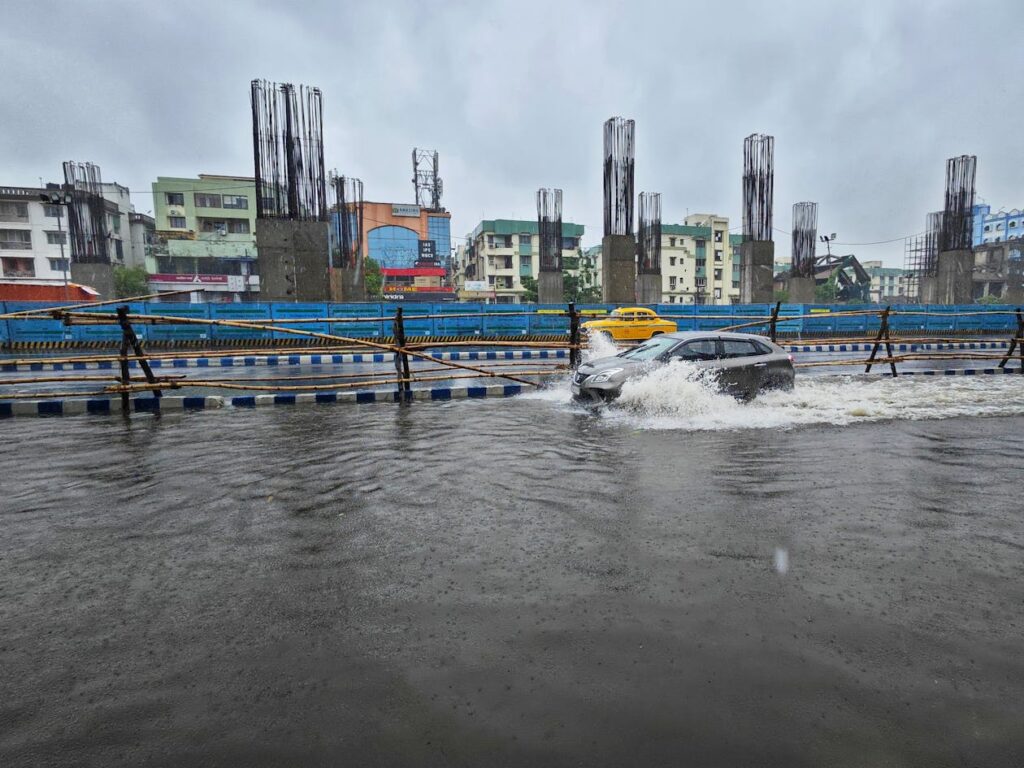
“They were able to get into their truck and they were able to honk a warning out to a lot of people at the campground, which definitely helped some people make it out,” explained their son Wes Glenna.
Lyle and Sue drove through the campground honking their horns as loudly and continuously as possible. Car horns cut through early morning silence, jolting sleeping families awake in time to assess their danger and evacuate.
“It was the only warning system they had at their disposal,” Wes noted about his parents’ creative emergency communication method.
Simple car horns became the difference between life and death for multiple families. No sophisticated emergency equipment or complex rescue protocols – just two people using the tools immediately available to them.
A Living Proof That Horn Honking Works
One grateful survivor provided powerful testimony about how the horn warnings saved his entire family. Daryl Kallio posted on social media expressing gratitude to the anonymous horn-honkers who woke his family.
“To the people that were driving through the campground honking the horns on y’all’s vehicles … I wanna say how thankful and grateful I am for y’all doing that. I woke up to the honking, got out of bed, and checked to see what was going on. It was because of y’all, my family, myself, our friend that was camping with us and her kids are all here today. You guys/gals are the ones that saved our lives. Thank you so much.”
Kallio’s testimonial proves that simple horn warnings directly saved multiple lives. His family, friends, and visiting children all survived because two strangers chose to delay their own escape while warning others.
Social media posts like Kallio’s helped identify Lyle and Sue as the horn-honking heroes. Community recognition followed once people learned who had risked their own safety to save others.
When Heroes Pay Physical Price
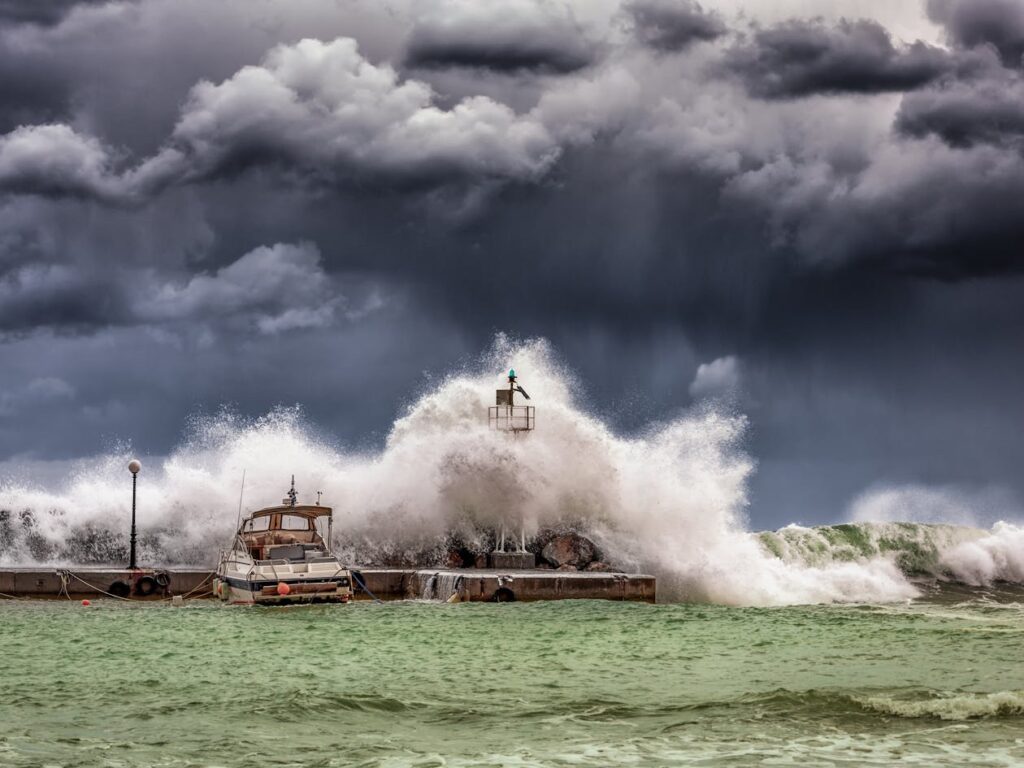
Lyle suffered a heart attack during the chaotic rescue efforts. Stress, physical exertion, and emotional trauma of watching disaster unfold around them took a severe toll on the 78-year-old hero.
Despite experiencing a cardiac emergency, Lyle continued helping others escape danger. Personal medical crisis couldn’t override his commitment to saving fellow campers from approaching floodwaters.
Medical emergencies during disasters complicate rescue efforts and create additional life-threatening situations. Lyle’s heart attack could have prevented him from helping others, but he pushed through his own physical crisis.
His determination to continue warning others despite cardiac symptoms demonstrates extraordinary courage and selflessness. Heroes often pay physical and emotional prices for their life-saving actions.
Watching Everything Float Away
After completing their warning mission, Lyle and Sue reached safety on a hilltop above the campground. From their elevated position, they watched floodwaters destroy their temporary home and community.
They witnessed friends, coworkers, and visitors being swept away by the raging current. Watching people they knew face mortal danger created lasting emotional trauma that would extend far beyond physical recovery.
Material possessions floated away along with the lives of people they’d grown to care about. Recreational vehicles, cabins, and personal belongings disappeared into the torrent along with human lives.
Survival guilt affects many disaster survivors who escape while others perish. Lyle and Sue had to process their own survival alongside grief for those who didn’t make it to safety.
Lost Everything Except What Matters
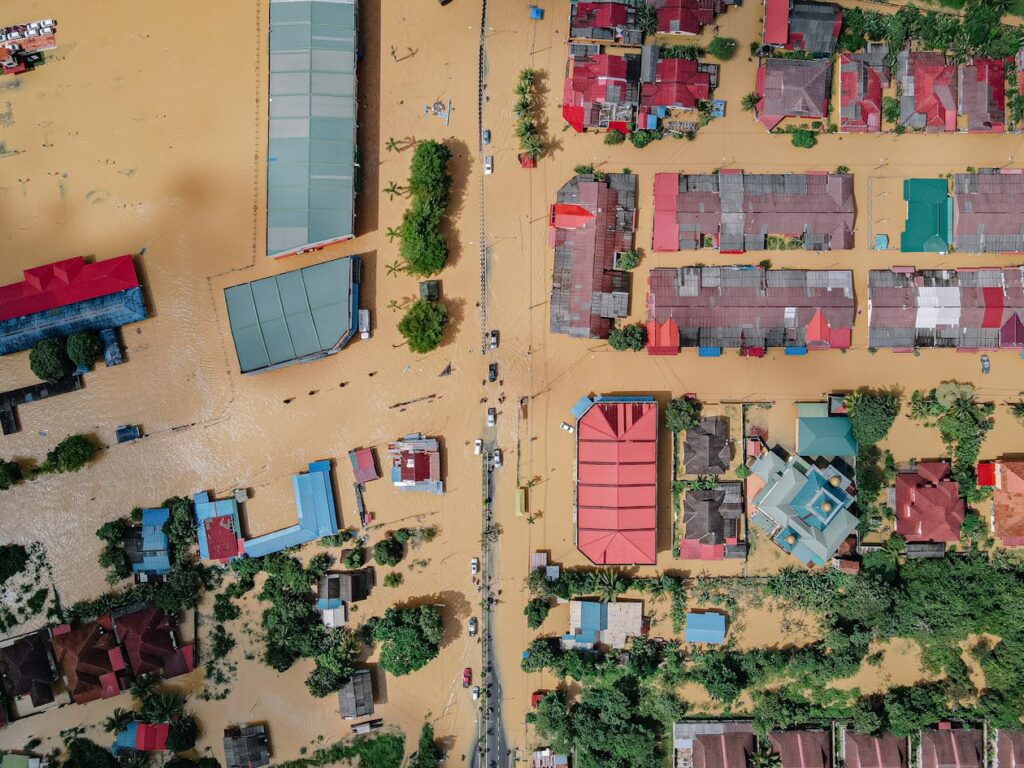
Lyle and Sue escaped with only their truck and the clothes they wore during evacuation. Decades of accumulated possessions vanished in the floodwaters along with their temporary home.
Material losses pale compared to human casualties, but starting over completely presents enormous challenges for elderly retirees. Insurance claims and bureaucratic processes create additional stress during recovery periods.
Losing everything forces people to identify what truly matters in life. Lyle and Sue’s survival and ability to help others proved more valuable than any possessions destroyed by floods.
Their experience demonstrates how quickly comfortable lives can change during natural disasters. Security and stability disappear within minutes when nature unleashes catastrophic force.
$29,000 GoFundMe Shows Human Kindness
Daughter-in-law Gina Glenna established a GoFundMe campaign to help the couple rebuild their lives after losing everything. Community response exceeded expectations, raising over $20,000 for the flood heroes.
Donations provided immediate assistance for essential needs including medical equipment required for Lyle’s hospital discharge. Community generosity enabled faster recovery than insurance claims or government assistance.
Online fundraising demonstrated how communities rally around heroes who risk themselves for others. People recognize and support those who demonstrate courage during crisis situations.
Grassroots support often provides more immediate help than official disaster relief programs. Direct community assistance bypasses bureaucratic delays that can leave survivors waiting for essential support.
Ordinary People, Extraordinary Moments
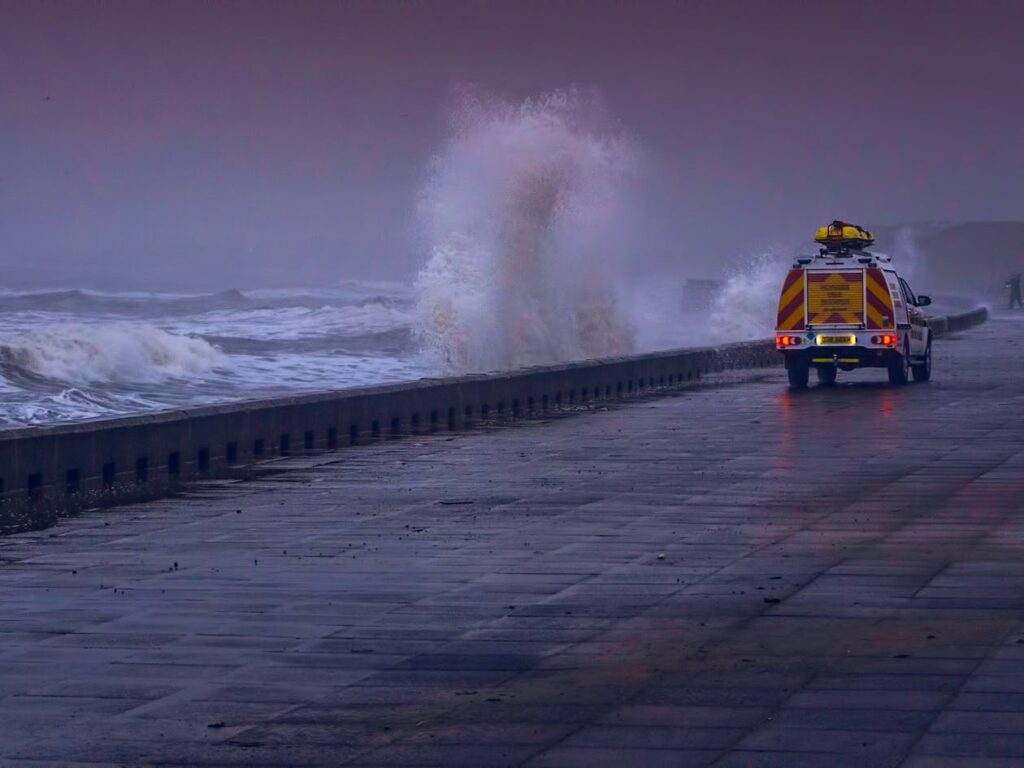
Lyle and Sue’s story proves that heroism emerges from ordinary people facing extraordinary circumstances. Their quick thinking and selfless actions saved lives during one of Texas’s deadliest floods in decades.
Simple tools like car horns become life-saving equipment when used creatively during emergencies. Heroes work with whatever resources they have available rather than waiting for perfect solutions.
Crisis situations reveal character and values that might remain hidden during normal circumstances. How people respond when lives hang in the balance demonstrates their true priorities and moral courage.
Communities benefit when individuals choose collective welfare over personal safety. Lyle and Sue’s decision to delay their escape while warning others created ripple effects that saved multiple families.
Recognition for heroes encourages others to act courageously during future emergencies. Celebrating people who risk themselves for strangers builds cultural expectations of mutual support and community responsibility.
Disaster preparedness involves more than emergency supplies and evacuation plans. Human factors like quick thinking, selflessness, and creative problem-solving often determine who survives catastrophic events.
Lyle and Sue Glenna transformed from ordinary retirees into life-saving heroes through simple actions taken during critical moments. Their story reminds us that heroic potential exists within everyone, waiting for circumstances that reveal our capacity for courage and selflessness.
Featured Image credits: GoFundMe
Loading...

